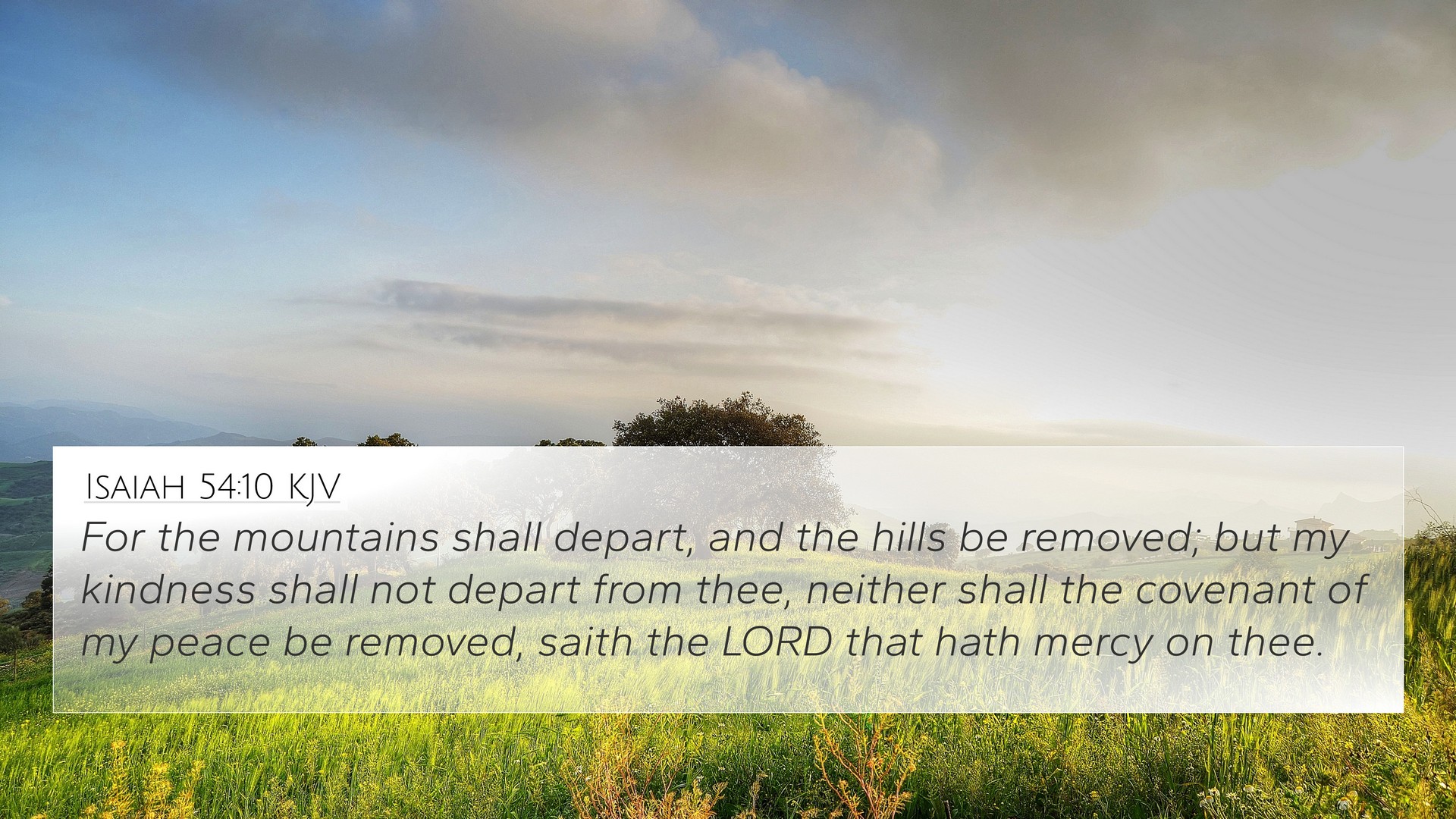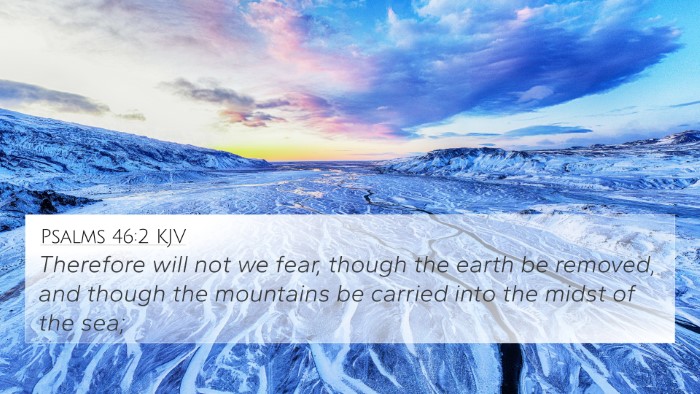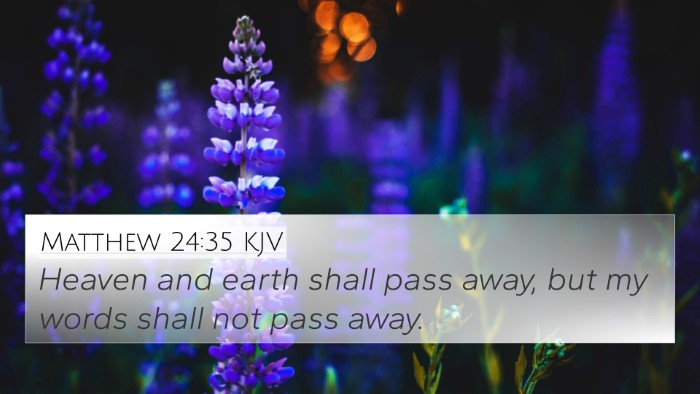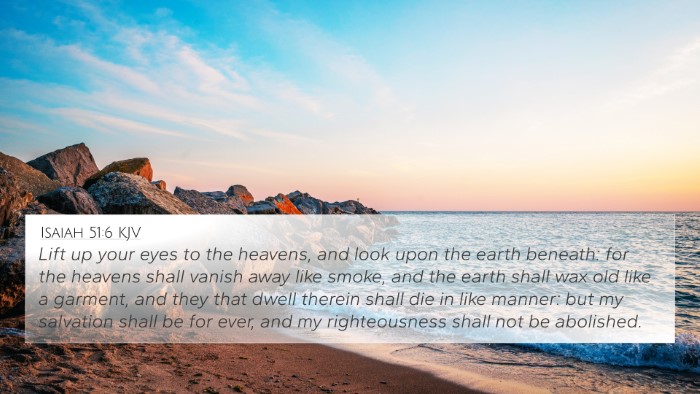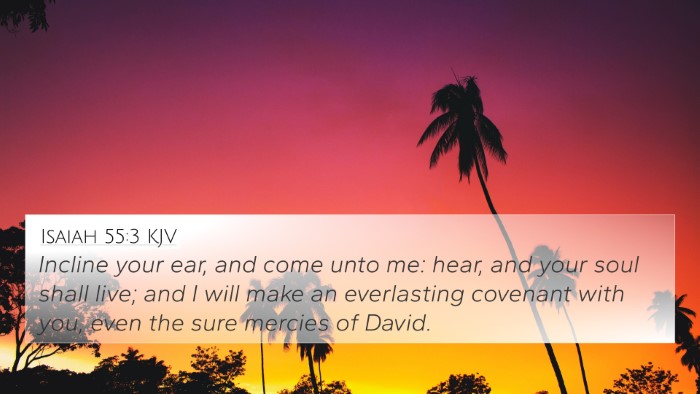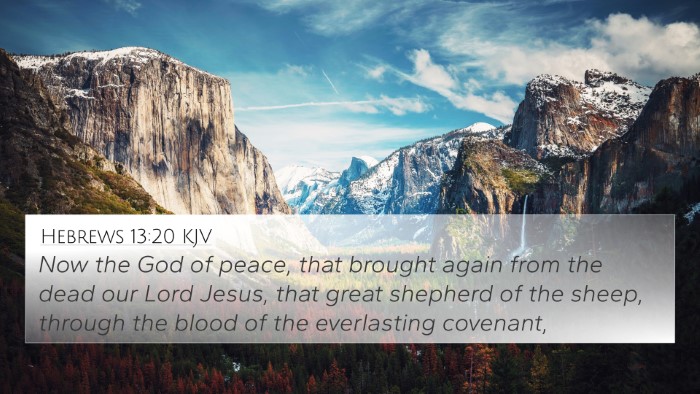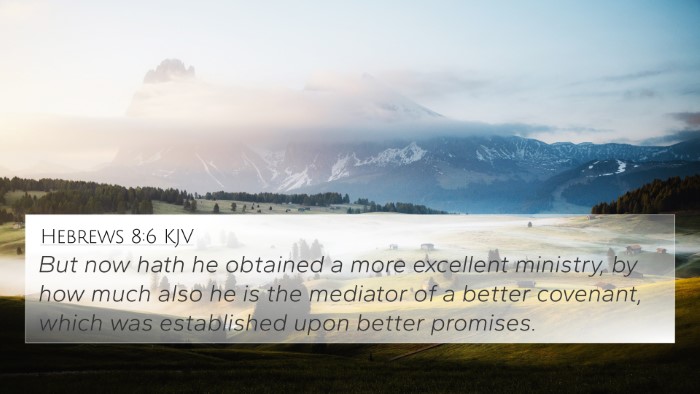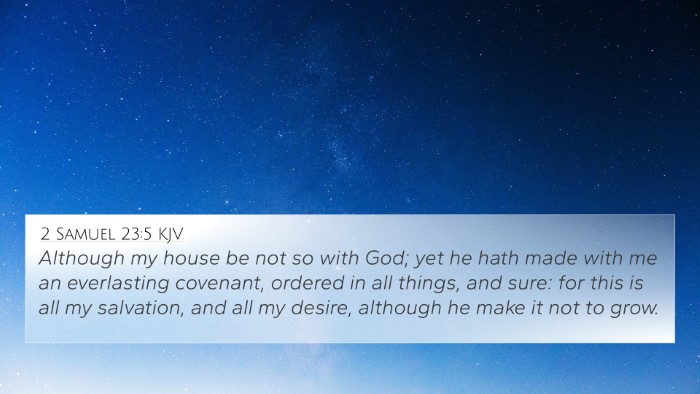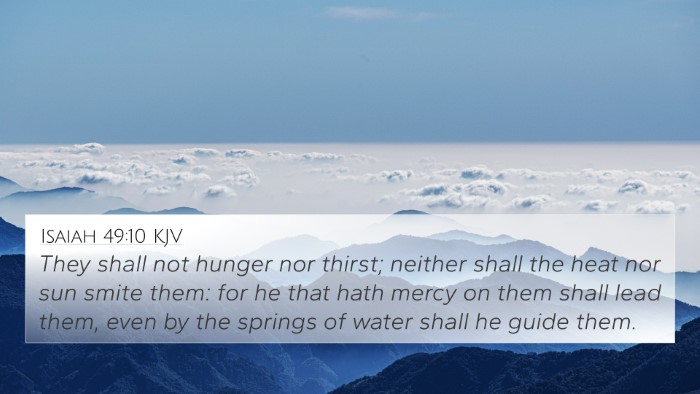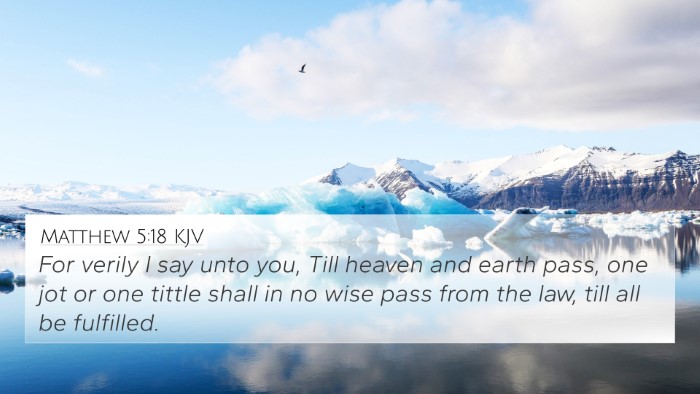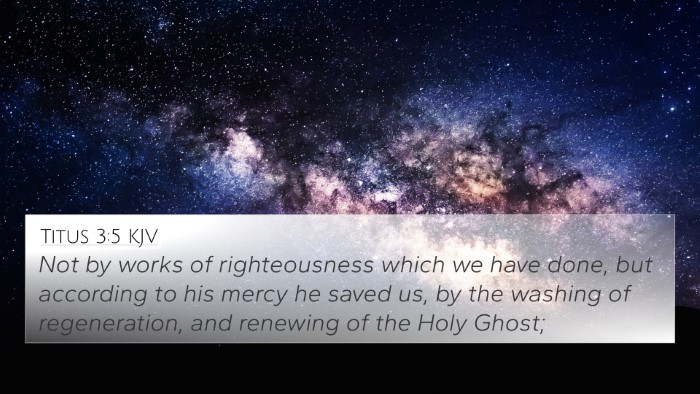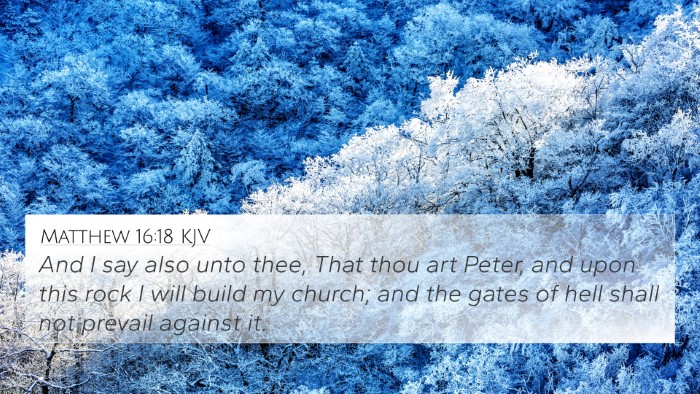Understanding Isaiah 54:10
Isaiah 54:10 states, “For the mountains may depart and the hills be removed, but my steadfast love shall not depart from you, and my covenant of peace shall not be removed," says the LORD, who has compassion on you.
Summary of Meaning
This verse is a powerful affirmation of God's unwavering love and commitment to His people. It provides reassurance that despite changing circumstances, the divine love and covenant established by God will remain steadfast.
Insights from Commentaries
-
Matthew Henry's Commentary:
Matthew Henry emphasizes the permanence of God's love as exemplified by the metaphor of mountains and hills. He asserts that while earthly fixtures may change, God's affection for His people remains constant. This passage highlights God's willingness to show compassion and His promise of peace.
-
Albert Barnes' Commentary:
Albert Barnes interprets this verse as a declaration of God's covenant not only with Israel but with all believers. He draws attention to the emphasis on God's 'steadfast love' and the assurance that trials and tribulations cannot sever the bond established by God. His commentary further illustrates the hope that believers can find in God's promises, enduring even through tumultuous times.
-
Adam Clarke's Commentary:
Adam Clarke highlights the significance of the term 'covenant of peace,' rooting it in God's eternal promises. Clarke reiterates the idea that divine love is not situational but rather transcendent, confirming that God's compassion will always be available. He frames this verse within the context of hope and restoration for the Israelites as well as for all who trust in God.
Bible Cross References
Isaiah 54:10 connects beautifully with several other passages in Scripture, reinforcing its themes of God's unchanging love and commitment. Key cross-references include:
- Romans 8:38-39: "For I am convinced that neither death nor life, neither angels nor demons, neither the present nor the future, nor any powers, neither height nor depth, nor anything else in all creation, will be able to separate us from the love of God that is in Christ Jesus our Lord."
- Hebrews 6:17-18: "Because God wanted to make the unchanging nature of his purpose very clear to the heirs of what was promised, he confirmed it with an oath." This reflects the strength of God's promises.
- Psalm 103:17: "But from everlasting to everlasting the Lord's love is with those who fear him, and his righteousness with their children's children." This parallels the lasting nature of God's love.
- Jeremiah 31:3: "The LORD appeared to us in the past, saying: 'I have loved you with an everlasting love; I have drawn you with unfailing kindness.'" This reinforces the concept of God’s enduring love.
- 2 Timothy 2:13: "If we are faithless, he remains faithful, for he cannot disown himself." This illustrates God's faithfulness in the face of human inconsistency.
- Isaiah 43:2: "When you pass through the waters, I will be with you; and when you pass through the rivers, they will not sweep over you. When you walk through the fire, you will not be burned; the flames will not set you ablaze." This reflects God's protection and love during trials.
- Malachi 3:6: "For I the LORD do not change; therefore you, O children of Jacob, are not consumed." Here, God’s unchanging nature is emphasized.
Thematic Bible Verse Connections
The theme of God's unchanging love in Isaiah 54:10 can be woven into larger Biblical narratives through various passages.
- Love and Compassion: It parallels 1 John 4:9-10, where God's love is demonstrated through Christ.
- Peace: It connects to John 14:27, where Jesus speaks of giving peace to His followers.
- Faithfulness Throughout Generations: See Psalm 100:5, affirming that the Lord's faithfulness endures forever.
Conclusion
Isaiah 54:10 serves as a profound reminder of the stability and constancy of God's love, even in a world where change is inevitable. By exploring cross-references and commentary insights, we gain a deeper understanding of the richness contained within this verse, fostering an appreciation for the interconnectedness of God's promises throughout the Scriptures.
Tools for Bible Cross-Referencing
To delve deeper into cross-referencing Biblical texts, consider utilizing tools such as:
- Bible concordances
- Cross-reference Bible study guides
- Online Bible reference resources
- Bible chain references
Understanding connections between Bible verses enriches the study of Scripture and enhances the believer's journey in exploring faith. By employing these methods, you can uncover thematic connections and gain insights into the divine narrative woven throughout the Bible.
